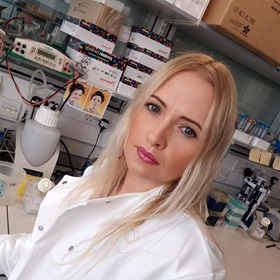Genetic testing to identify women with Lynch Syndrome is likely to need to increase dramatically to ensure that carriers are not missed, a new analysis has found.
A study by The Institute of Cancer Research, London, and published in the Journal of Medical Genetics, has revealed that only a fraction of women diagnosed with endometrial (womb) cancer were tested for Lynch Syndrome in 2019, according to an analysis of lab data.
Lynch Syndrome is an inherited condition that greatly increases the lifetime risk of certain types of cancer, including bowel, ovarian, pancreatic and womb cancers.
It is thought to affect 175,000 people in England, although currently only approximately five per cent are aware they have it.
An effective way to spot cases
Because womb cancer is often the first cancer that women with Lynch Syndrome develop, genetic testing is an effective way to spot cases.
In 2020, the National Institute for Health and Care Excellence (NICE) introduced guidelines which recommended that everyone diagnosed with womb cancer should be tested for Lynch.
However, a baseline analysis, carried out by a team from The Institute of Cancer Research (ICR) found that of the 7,928 women who were diagnosed with womb cancer in 2019, just 1408 (17.8 per cent) were given a tumour test (typically an immunohistochemistry (IHC) test) to check for abnormal cells.
Of the 104 patients who were then identified as being eligible for genetic testing, only 25 per cent had a test result recorded. Of these 26 patients, 15 had Lynch Syndrome.
The study, which received funding from The Wellcome Trust, and Cancer Research UK, and was conducted in partnership with the National Disease Registration Service, also showed there were significant delays between patients getting their cancer diagnosis and receiving a genetic test.
The median time from cancer diagnosis to germline testing was 315 days, with the longest wait time from diagnosis to testing at over two years (837 days).
A national registry for Lynch Syndrome
Earlier this year, the National Disease Registration Service (NDRS), NHS Genomic Medicine Service Alliances (GMSAs) and NHS Regional Clinical Genetics Services, together with researchers from the ICR, set up The English National Lynch Syndrome Registry.
The database, which comprises of 9,000 patients with Lynch Syndrome, will ensure participants are called up for regular bowel cancer screening to detect the disease in earlier stages, when treatment is more successful.
In addition, researchers will be able to find patients who are eligible for clinical trials, speeding up the process and ensuring that treatments can reach patients faster.
Dr Catherine Huntley, a specialist public health doctor at The Institute of Cancer Research, who conducted the analyses, said:
“For female patients with Lynch Syndrome, endometrial cancer is often their first cancer diagnosis. Tumour testing followed by genetic testing is an effective way of identifying the three per cent of cases – approximately 240 people with endometrial cancer – every year caused by Lynch Syndrome.
“However, our study shows that historically, testing rates appeared to be very low. It’s imperative that women with endometrial cancer have routine testing of their tumours to prevent opportunities to diagnose Lynch Syndrome being missed. Identifying patients with Lynch Syndrome provides us with a valuable opportunity to prevent further cancers in that patient. Delays in starting preventative strategies such as taking aspirin and having regular colonoscopies could lead to bowel cancers being diagnosed at later stages when they are much harder to treat.
Professor Clare Turnbull, Professor of Translational Cancer Genetics at The Institute of Cancer Research, London, and Consultant in Clinical Cancer Genetics at The Royal Marsden NHS Foundation Trust, who led the analysis, said:
“Having a Lynch Syndrome diagnosis helps to guide more personalised cancer treatment but also enables families and relatives of that patient to be offered testing too. Relatives who have Lynch Syndrome can be referred to genetic services to help catch any cancers as early as possible.”

 .
.